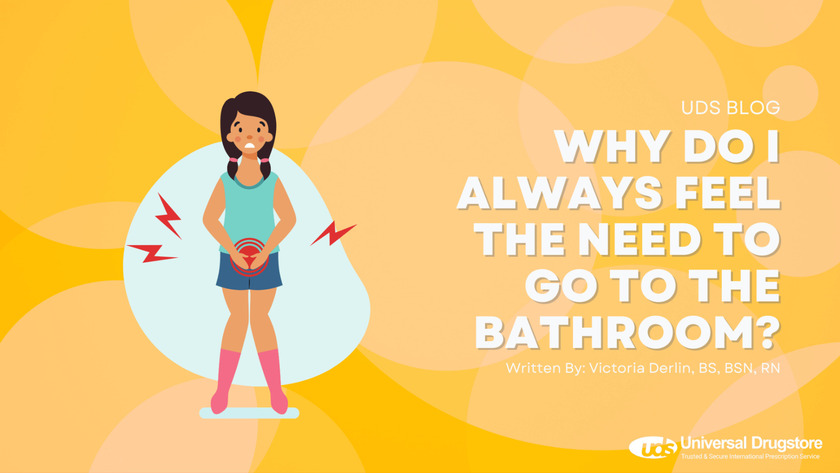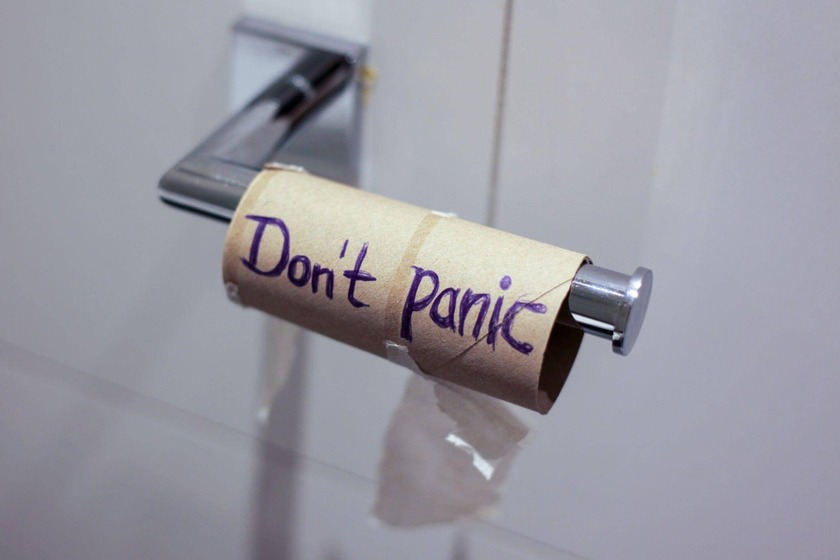Why Do I Always Feel the Need to Go to the Bathroom?

Do you feel like you are constantly going to the bathroom to urinate? Is running errands, going to work meetings, and attending events difficult because you are always going to the restroom? Are you waking up multiple times a night to pee? Know that you are not alone.
There are millions of people who experience urinary issues that cause them to have to go to the bathroom more frequently than average. Frequent urination is a symptom of many conditions so it is essential that you are evaluated by a healthcare professional to find out what the underlying cause is. Some common problems that cause frequent urination are urinary tract infections, diabetes, enlarged prostate, and more. Seeing your primary care provider is a good place to start, to be evaluated to find out what is making you need to frequently urinate. If they think it is necessary they may refer you to a specialist for more evaluation and treatment.
A Short Review of the Urinary System
The urinary system is made up of many parts including the kidneys, bladder, ureters, and urethra. The purpose of the urinary system is to cleanse the blood of wastes and excess water. The wastes and excess water is turned into urine and excreted from the body when urination occurs.

What Are Some Conditions That Can Cause Frequent Urination?
As mentioned earlier, there are many conditions or reasons that could cause frequent urination. Some of the most common include,
-
Urinary Tract Infections
-
Pregnancy
-
Enlarged Prostate
-
Medications
-
Diet
-
Diabetes
-
Neurological Injuries
-
Constipation
Urinary Tract Infections
A common symptom of a urinary tract infection (UTI) is frequent urination. Confirm that you don’t have a UTI before assuming you have an overactive bladder. UTIs are the most common type of infection. A UTI is a general term used to describe an infection anywhere in the urinary system from the kidneys, ureter, bladder, or urethra. This is caused by bacteria, fungi, or yeast that have gotten into the urinary system. This usually occurs from sexual activity, poor hygiene, wiping your genital area from back to front, and urinary structural issues. Symptoms of a UTI will vary and some people may have no symptoms at all. The most common symptoms are burning with urination, frequent urination, abnormal urine, cramping, and flank pain. UTIs must be treated by a healthcare provider with antibiotics. If a UTI is not treated the infection could spread to other parts of the body.
Pregnancy
During pregnancy, as the fetus grows it causes more pressure to be put on the bladder. Frequent urination during pregnancy is normal. Unfortunately, there are no tricks or methods to prevent this. It is important to not try to limit your fluid intake just so you don’t urinate as much. Hydration during pregnancy is essential for mom and baby.
Enlarged Prostate
Men have a gland called the prostate. In some circumstances, the gland grows too big and puts pressure on the urinary system which can cause frequent urination. This is a common problem and the risk increases with age. The good news is that there are treatments to help with an enlarged prostate. If left untreated, an enlarged prostate can cause complications. If you are ever unable to urinate, you should go to the emergency room.
Medications
There are medications that can cause frequent urination, known as diuretics and are also commonly called “water pills”. These medications are often used in patients that have too much fluid and it needs to be discarded from the body. One of the side effects of these medications is frequent urination because the body’s way of getting rid of excess fluid is by urinating. Even if going to the bathroom frequently bothers you, it is important to take these medications as directed by your healthcare professional. Normally, it is recommended to take diuretics in the morning instead of at night so that you are not being awoken from sleep to urinate.
Diet
Consuming too much alcohol or caffeine will cause you to urinate frequently. These are similar to diuretic medications and will rid your body of fluid. One of the issues is that if you are drinking a lot of alcohol or caffeine then you are probably not drinking enough water. The combination of drinking too much alcohol or caffeine and not enough water will cause dehydration.
Diabetes
Frequent urination is a common symptom of diabetes and uncontrolled blood glucose. Oftentimes people one of the first symptoms of diabetes is constantly being thirsty no matter how much water you drink and frequent urination. Other common symptoms include losing weight, being very hungry, vision changes, tingling, numbness, fatigue, dry skin, and slow healing.
Neurological Injuries
The brain aids in controlling the urinary system by signaling you when your bladder is full and you need to urinate. When the brain or neurological system is damaged it can cause a person to not be able to control when they urinate. Some causes of neurological injuries include stroke, multiple sclerosis, parkinson’s disease, back injuries, and trauma.
Constipation
Constipation places pressure on the bladder and can affect your urination frequency. If you suffer from constipation frequently it could be affecting how often you need to urinate. Speak with your healthcare provider for methods and/or medications to help with relieving constipation. If constipation is the cause of your urinary issues, once you resolve the constipation the urinary issues should also resolve.
Overactive Bladder Syndrome
Overactive bladder syndrome is a general umbrella term for frequent urination. As discussed earlier, there are several causes. The symptoms of overactive bladder syndrome include,
-
Urinary Urgency
-
Urinary Frequency
-
Incontinence of Urine Leaking
-
Having To Get Up At Night To Urinate
Conclusions
No one likes having to go to the bathroom frequently or being awoken several times a night to urinate. There are many causes of frequent urination. See your healthcare provider to determine what is causing your frequent urination. The first step to finding a solution to urinary frequency is to identify the cause.
About the Author
Victoria Derlin is a nurse who started her career working in acute care and now works in primary care. She is passionate about advocating for nurses and patients. In her spare time, she rides horses, reads lots of books, bakes delicious pies, and spends time with her family. You can connect with her on instagram @nurse.vicki.rn